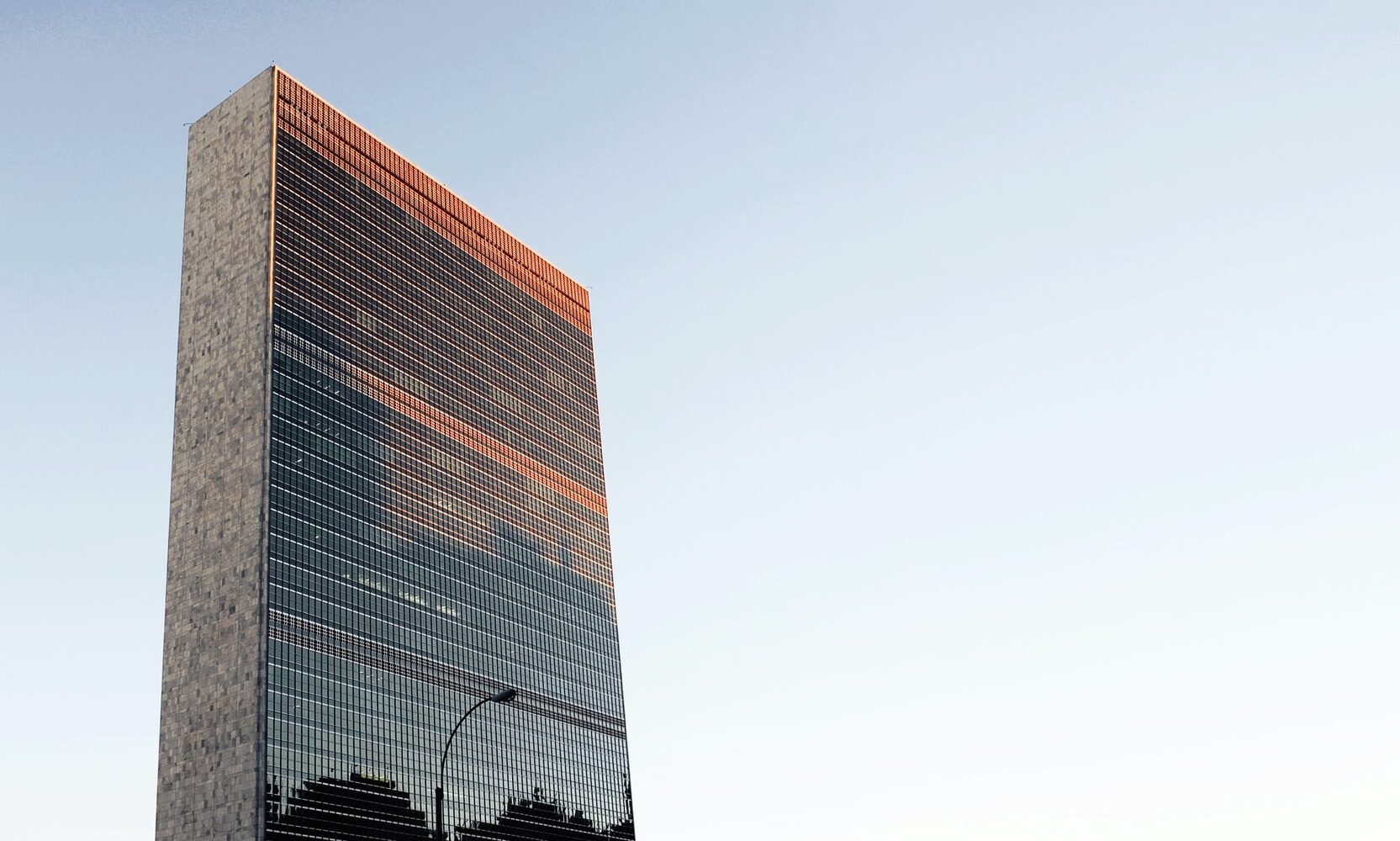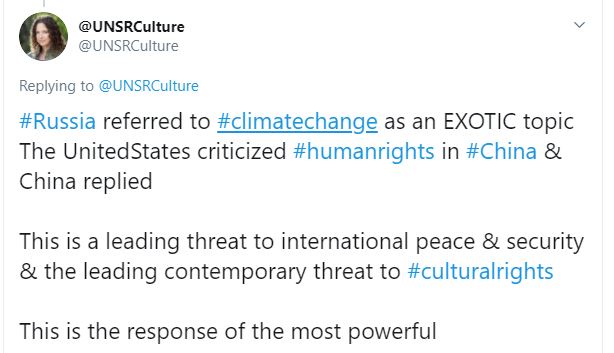


Third Committee
This week saw the start of the Third Committee meetings at the 75th session of the UN General Assembly. The General Assembly allocates to the Third Committee, items relating to a range of social, humanitarian affairs and human rights issues that affect people all over the world.
The UN Special Rapporteur in the Field of Cultural Rights and the UN Special Rapporteur on the right to Freedom of Religion or Belief both presented reports (via live video link) to the Committee.
The Special Rapporteur in the Field of Cultural Rights, Dr Karima Bennoune, presented her report on the detrimental effects of the climate change emergency on the realisation of cultural rights.
In the report she noted, “The mandate on cultural rights was established to protect not culture and cultural heritage per se, but rather the conditions allowing all people, without discrimination, to access, participate in and contribute to cultural life through a process of continuous development. These conditions are greatly jeopardized by the climate emergency. The universality of human rights, including cultural rights, has no meaning today without a liveable environment in which they can be enjoyed.”
The Special Rapporteur on the right to Freedom of Religion or Belief presented his report on the elimination of all forms of religious intolerance in the context of Sustainable Development goals.
His report focuses on people, who on account of “their religion or belief, are at risk of ‘being left behind’, but have received less attention from policymakers in the field of sustainable development.”
He says, “For persons belonging to religious or belief minorities, their exclusion – where it exists – is often beset by systemic and systematic denial of both their existence and their identities. Their marginalization is reinforced by the resulting challenges in accessing essential services, resources and opportunities they face at the hands of majorities, official state structures and even from members in their own communities.”
Both Rapporteurs received inappropriate and ungracious responses from a number of the States who engaged in the interactive dialogue with them.
Russia made an intervention during both presentations, recommending that both Rapporteurs should focus more heavily on Ukraine. Of Bennoune’s report specifically, Russia said that she should not be focusing on such an “exotic issue” and that it fell outside her mandate. Bennoune replied with, “”I find it profoundly offensive you refer to climate change as an “exotic issue.” Particularly as a permanent member of the Security Council you have an obligation to lead on these issues, to counter entire ways of life becoming extinct”
In an statement of dog whistling and slander, India accused Shaheed of “cherry picking” incidents that relate to “one religious community” and that he only focused on that “community.” The Indian delegate asked, “does this demonstrate his inherent bias…we wonder if there is a hidden agenda behind the report?” The delegate talked of the report being like a racy horror thriller. Shaheed responded: “If the report reads like a horror story, it is because the plight of many minority communities is so horrifying.”
The USA used its intervention on Bennoune’s report to attack China’s policy on Tibet, whilst China used its slot to retaliate against US charges. Neither State engaged with the report itself. In its intervention on Shaheed’s report, the USA took the opportunity to “reiterate its concerns” about a previous seminal report of Shaheed’s on FoRB and gender equality.

Human Rights Council Elections
The 75th session of the UN General Assembly also saw the elections of members for the Human Rights Council. The Assembly elected 15 new members to the UN’s top human rights body, for the 2021-2023 term. These were: Bolivia, China, Côte d’Ivoire, Cuba, France, Gabon, Malawi, Mexico, Nepal, Pakistan, Russian Federation, Senegal, Ukraine, United Kingdom and Uzbekistan. All 15 members will serve three-year terms beginning on 1 January 2021.
With 16 candidates for 15 seats, only one candidate was not elected – Saudi Arabia. China and Russia both received the lowest number of votes of States elected in their regions, with China also seeing a decline of votes of over 20% since last election.
According to General Assembly resolution 60/251, a commitment to the promotion and protection of human rights at home and abroad is essential criteria for membership.
There are five regional groups in which states are elected: the African Group, Asia Pacific Group, Eastern Europe Group, Latin America and Caribbean Group, and Western Europe and Others Group.
All but one region presented closed non-competitive slates in the election, assuring candidates in those slates a seat on the Council. Civil Society has been calling on all regional groups to ensure competitive slates as a matter of principle. Critically, 15 of the 16 candidates presented voluntary pledges prior to the election. The only candidate failing to do so was Saudi Arabia – also the one candidate State not elected to the Council.